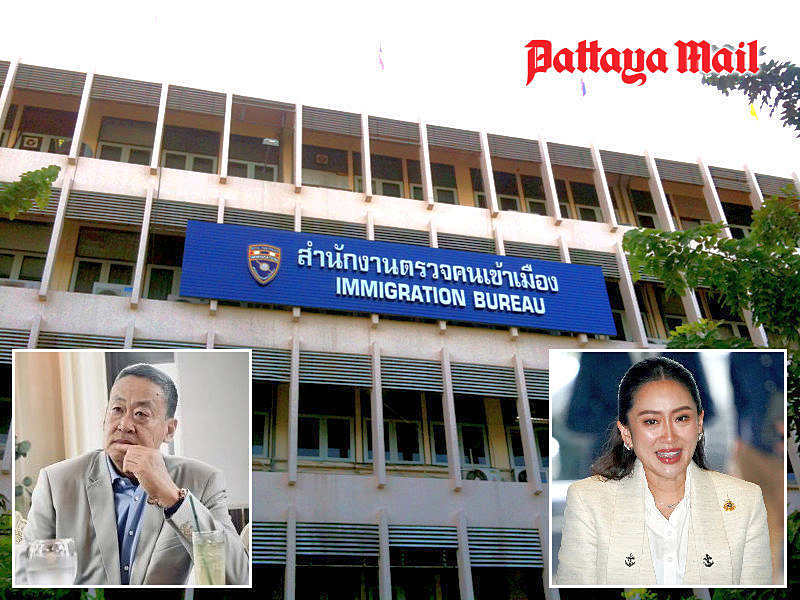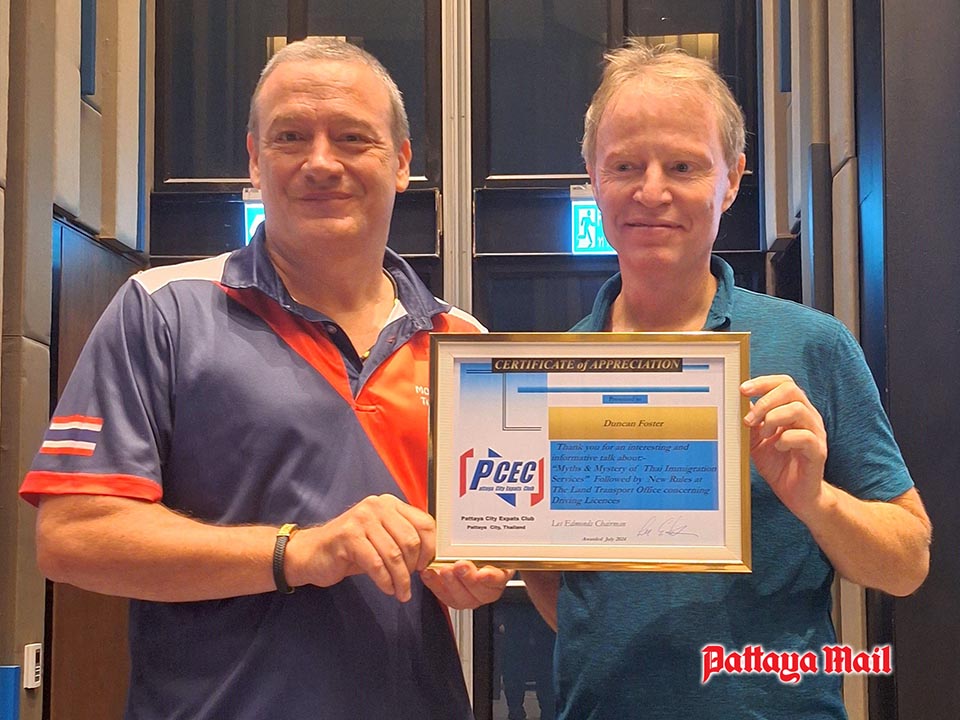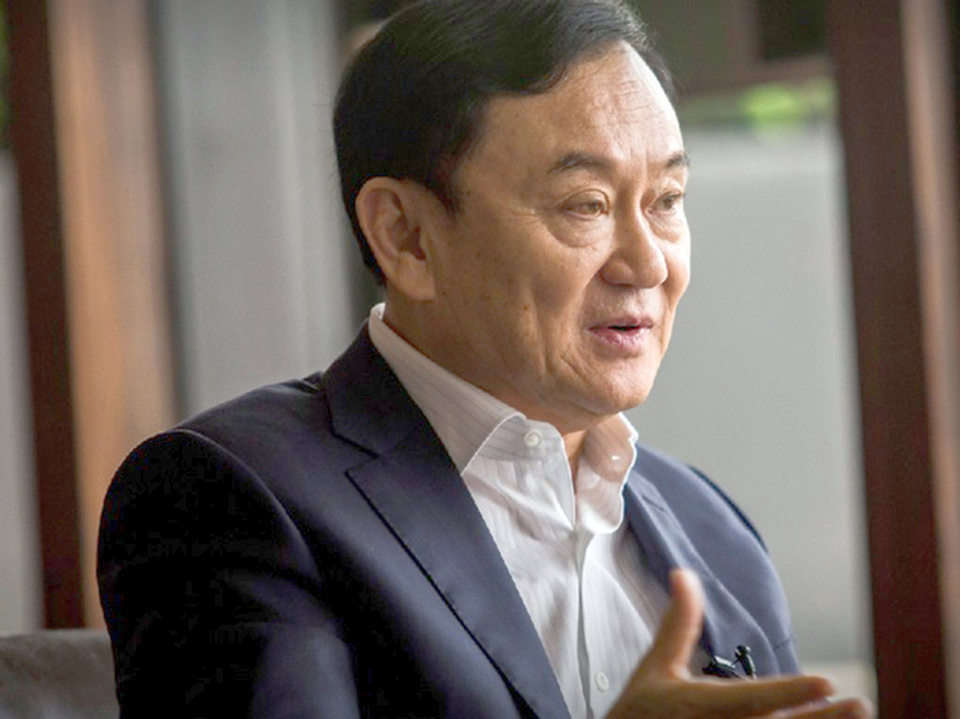August 19, 2024: According to former Red Shirt warrior Jatuporn Prompan, who is sounding more and more conservative, Thailand's newest and youngest prime minister will be ousted from Government House by early next year.
He gave a list of "old wounds" that can resurface to compromise Paetongtarn Shinawatra's legal and constitutional legitimacy. Among them is curious ownerships of the previous Alpine Golf Course, which had led to a big political scandal that blew up in many Pheu Thai faces.
Some conservative analysts or activists have said the same thing. They think Alpine can undermine Paetongtarn, with official complaints seeking to remove her certain to be launched.
"Oong-ing (the new prime minister) must check the records to see if she had anything to do with Alpine," Jatuporn said. "If she did, it could be a similar case that ended the political path of (ex-Palang Pracharath politician) Pareena Kraikupt."
He also mentioned education matters that raised ethical questions, "nominee purchases" of Thai properties by foreigners, and election campaign policies that seemed to benefit foreigners at the expense of Thai sovereignty.
"The country is not a toy, (in other words) an experimental playground for risky policies like Digital Wallet or increased foreign stakes in condominiums," Jatuporn said.
He added in his Facebook Live that opponents of Pheu Thai must be drooling while sharpening their knives.
August 18, 2024: The Constitutional Court essentially ruled that Srettha Thavisin lost his legitimacy as prime minister because of a Cabinet appointment, but what actually tested his integrity as a leader more was the Pheu Thai Party's flagship policy.
Newly-appointed Prime Minister Paetongtarn Shinawatra is facing the same ultimate test. She has hinted that the "Digital Wallet" scheme may need to be reviewed, but her statement was still ambiguous to the point of making certain mainstream media outlets believe that there would be no significant changes to the controversial programme.
So much debate has focused on whether Digital Wallet would really help the poor effectively and boost the Thai economic rather than ruin it in the long run. If she wants to continue it essentially in its current form, she must be able to defend it scientifically and rationally. She must not invoke the key Srettha argument that claimed "conspiracy" and virtually offered no valuable explanation to back up the plan.
Srettha's integrity also dimmed because of his handling of the Thaksin issue. For obvious reasons, the Thaksin affair will complicate Paetongtarn's political status more than it did to Srettha's. Thaksin is a former convict who is now the father of Thailand's prime minister and still faces legal charges.
Paetongtarn's path will be strewn with legal and constitutional landmines. How the justice system will function in the current circumstances remains to be seen and will be a telltale sign as to the country's direction.
August 17, 2024: You have to lead a superpower nation to be able to be rudely playful with a reporter and get away with it.
This is not to downplay what Palang Pracharath leader Prawit Wongsuwan did the other day. (According to some LINE comments, he might have put an end to any prime ministerial aspiration with that little "patting".)
This is to say that a politician's aggressiveness toward members of the press is perceived differently from place to place. What is considered rude also seems to increase in seriousness in reverse proportion to the sophistication of politics.
For example, in one of President Joe Biden's hot mic moments, he was overheard murmuring while being inquired about inflation: "What a stupid son of a @#$%&"
Imagine Prawit was overheard saying something like that when a reporter asked him about the House of Representatives vote to elect Paetongtarn Shinawatra as the new prime minister.
Peter Doocy is a senior White House correspondent, mind you. What happened in the studio of Fox News? They laughed at it. They found it hilarious. Most pro- and anti-Biden news networks gave it a rest after two days.
Again, this is not in Prawit's defence. This is to bring back a record that the leader of the free world could call a member of a major element of democracy "stupid" and all everyone did was laugh.
August 16, 2024: If someone had predicted early last year that Move Forward would sweep the May 2023 election but would not be in the government and would finally be dissolved, that Pheu Thai would form an administration with the main conservative parties, that a Pheu Thai prime minister would be removed by the Constitutional Court, only to be replaced by another Pheu Thai prime minister, that the cannabis deregulation policy that the conservatives were so proud of would be reversed at their own "approval", that the Digital Wallet policy that the conservatives decried would sleepwalk through Parliament, again at their approval, that predictor would be sent to a mental institution.
That's how crazy the past 16 months has been. Bad news is it can get crazier, at the expense of development policies that will be written, rewritten, revoked and reintroduced for fun.
Nobody can really celebrate. The "conservatives" and "liberals" are both swallowing bitter pills. Pheu Thai will have to keep looking over its shoulder. Backstabbing will be the most vital part of the Thai political game. Alliance will be based on vested interest, not trust or desire to give Thais utmost benefits.
August 15, 2024: The last thing people thought on hearing Wednesday's Constitutional Court verdict against Srettha Thavisin was that Parliament would vote less than two days later to elect the new prime minister.
But here we are, just hours before the House of Representatives is scheduled to make it seem like Wednesday was another normal day in Thai politics.
This is the idea. A lot of people concerned would not want things to drag on for various reasons. Big businesses do not want great uncertainties. Politicians in power do not want mathematical formulas to emerge that could encourage the previously hopeless or entice potential rebels into upping bargains.
The swift schedule means much remains in Pheu Thai's control as there is not enough time for the likes of Anutin Charnvirakul or Prawit Wongsuwan to conjure up a competing scenario. As for the newly-dissolved party, they did not stand a chance in the first place due to the complications of last week's ruling and the mistake of failing to name substitute prime ministerial candidates. (This candidacy naming issue would give everyone a valuable lesson, not just the "Orange" camp.)
Also, we are seeing the importance of being able to control House schedules. (In addition to the ballooning irony of government leaders' cars entering and leaving the house of you-know-who.)
August 14, 2024: Today's Constitutional Court ruling on the prime minister's case can ensure escalation of Thailand's political turmoil, which has been kept from exploding by a fragile and absurd political equilibrium where partnership exists not on ability and willingness to work together, but on developments caused and dictated by utmost extremism and self-interest.
Things were always heading toward a dead end either way. The equilibrium is so sensitive that the most minuscule change can cause a turbulent upheaval, let alone a gigantic development like the dissolution of the Move Forward Party or the prime minister's removal.
The court verdict ousting Srettha would only hasten the inevitability, a free-for-all political fight that cannot guarantee the winner but can ascertain one thing _ whoever emerges "triumphant" will not be able to bring peace and will have to continue looking over his or her shoulder.
As everyone knows, Pheu Thai's relationship with the conservatives depends on how the latter group perceives Move Forward or its reincarnation. It is never based on public interest. Pheu Thai and what remains of Move Forward, meanwhile, have crucially-conflicting interests as well.
Horse-trading will take place at full throttle. Who is needing whom more and who is holding whom hostage are slippery questions invoking slippery answers.
The already-big mess can get even messier over the next few days.





























